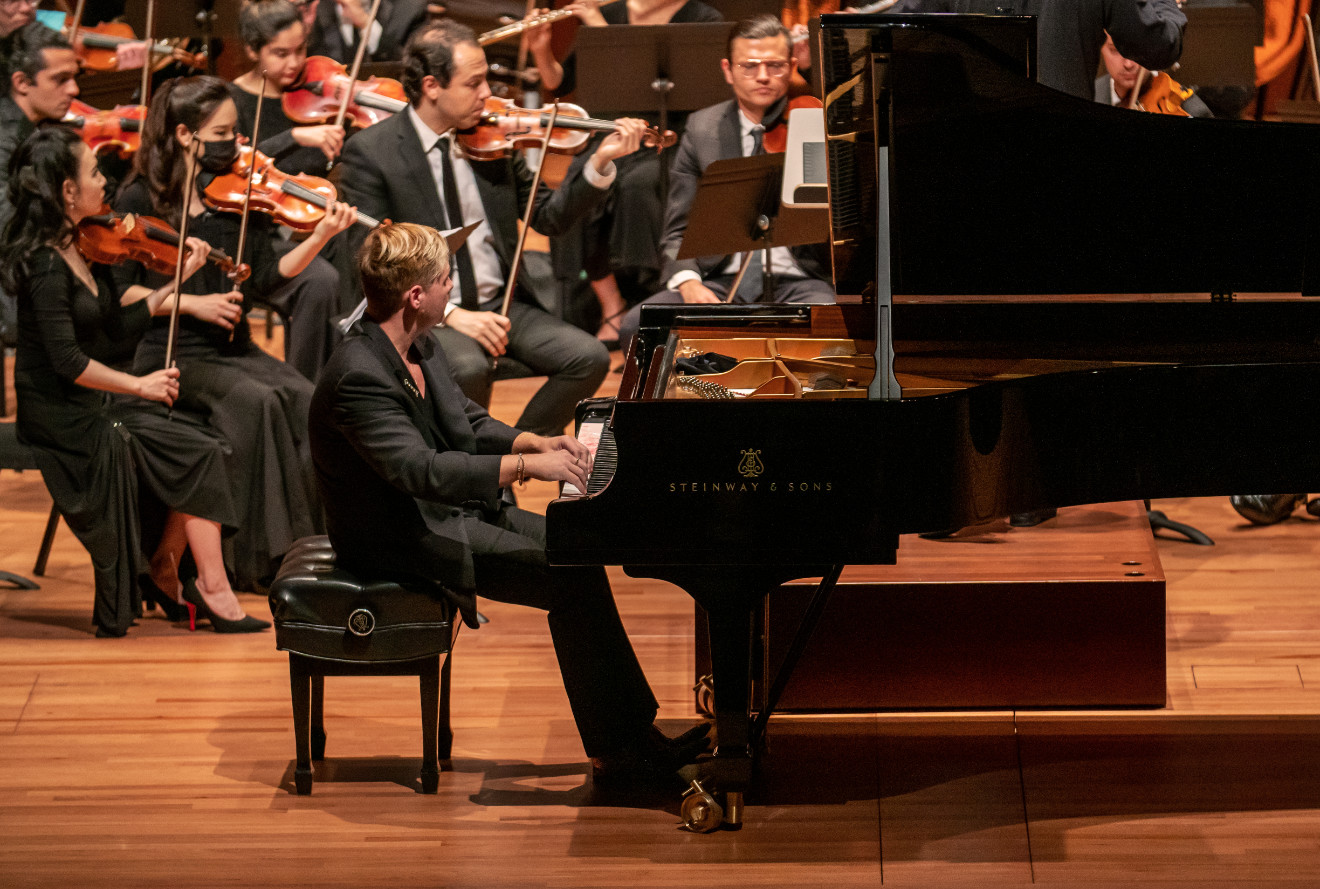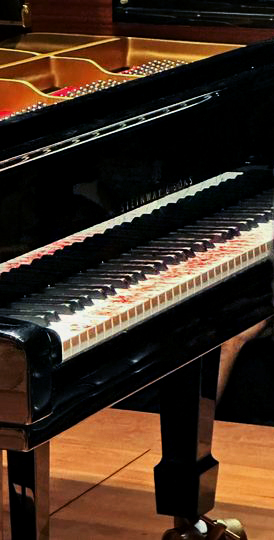
It was Friday evening when Konstantin Soukhovetski entered the stage of the renowned Alice Tully Hall at Lincoln Center. The roaring applause quickly melted into the breathless anticipation of Soukhovetski’s performance as he prepared to fulfill his long-awaited dream of playing Rachmaninoff’s Concerto No. 4 for the first time in his 25-year musical career. The dream came true but not without blood spilled.
A rare concert of all five Rachmaninoff’s piano and orchestra masterpieces, organized by Susan and Louis Meisel, the New York-based art dealers, and Karen Hakobyan, the founder and conductor of Pegasus the Orchestra, was last performed all together 70 years ago. After being rescheduled twice due to the pandemic, this eminent concerti marathon finally took place on October 21 and made a bloody mark on piano performance history.
“The concert was important for me because it was my return to Alice Tully Hall,” said Soukhovetski, who played his solo recital debut there in 2006 as a winner of the William Petschek Award, the highest honor given to a single pianist at the Juilliard School. “Being back was a very sentimental experience, and being back and playing my favorite piano concerto as a premiere – it was an excitement on multiple levels.”

The excitement arose exponentially from the beginning, but when they reached the main climax in the first movement, Soukhovetski passionately slammed the bass with his left hand to cover the orchestra and slashed his pinky with the key. “Before I knew it, I just saw blood gushing from my finger,” he said. “The edge of the key was very sharp. I landed at an angle on the edge of the key, which sliced the finger like a knife.”
The blood soon covered the piano keys as the mood of the concerto got darker and the scene more grotesque. While juggling his performance and injury, Soukhovetski was trying to find a solution to keep playing for another 25 minutes without ruining the experience for the audience. “Stopping was not an option for me,” he said. “Half of my brain was still doing the narrative, playing the music, and being in the moment, but the other part of my brain was mitigating the crisis.”
Fortunately for Soukhovetski, the concertmaster, Eiko Kano, handed him her black handkerchief. “I had to estimate every tutti that the orchestra was playing to wipe the keys and try to stop the bleeding, and every time I had two bars between my entrances I grabbed the handkerchief and wiped the blood off the keyboard,” he explained. “It became this bloody dance with a handkerchief because I had to keep doing it all the time.”
However, it was not the end of his nightmarish experience while playing one of the most complex compositions by Rachmaninoff. “I had to re-finger my left hand in real-time to avoid putting pressure on the wound while being aware that half the keyboard is slippery and the other half is rapidly becoming sticky,” said Soukhovetski. He admitted that the sticky keys made the third movement of the concerto even more challenging because of the tremendous pace and polyrhythmic texture.
“Witnessing the performance executed masterfully with a pool of blood on the keys only shows you how extraordinary Konstantin is as a pianist,” said Philip Kwoka, the president and founder of the Bronx School of Music, who was among the audience. “Most pianists would have stopped playing with a blood bath underneath their fingers.”
“I am glad and proud that we played the piece extremely well, nevertheless. I was able to stay on top of the situation despite what happened,” said Soukhovetski. “I think I am still in shock. It is reassuring, however, what we can accomplish if we keep calm.”
Emma Kazaryan
Multimedia journalist and photographer based in New York